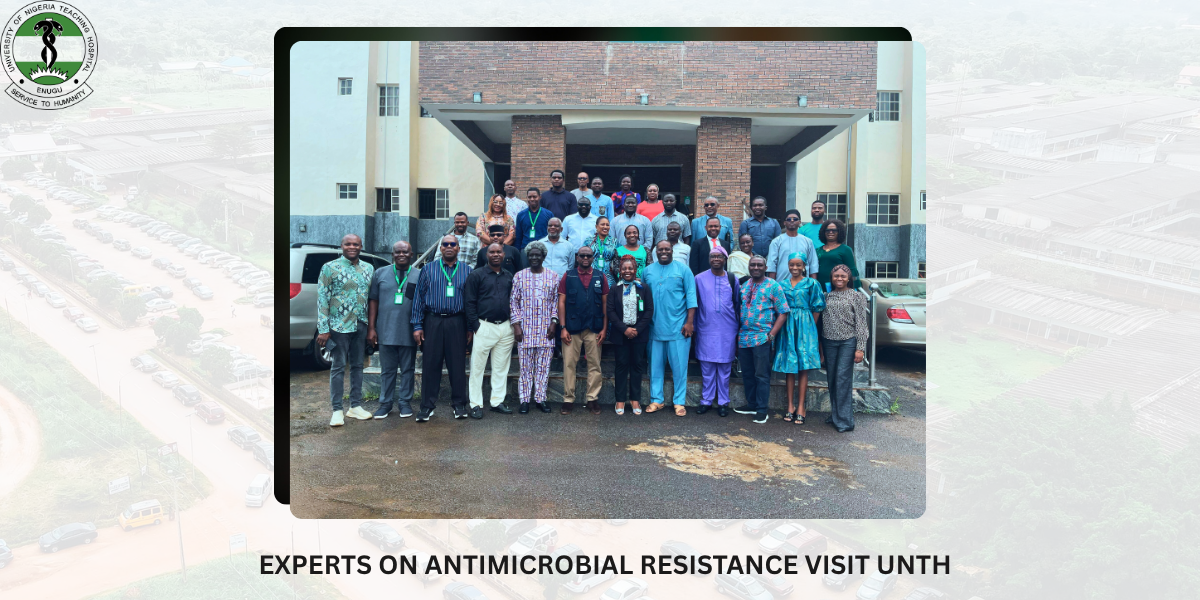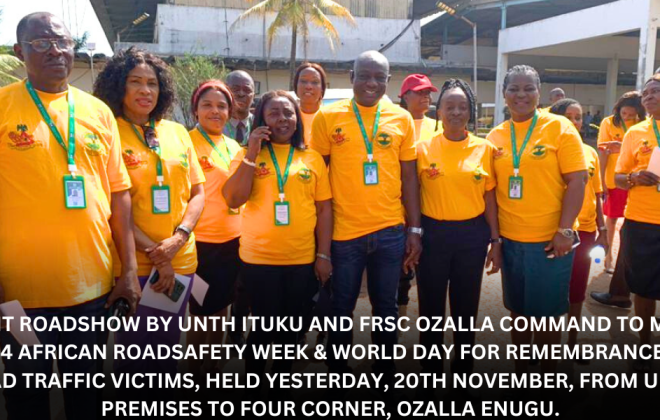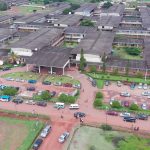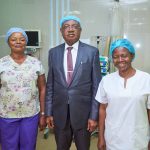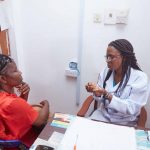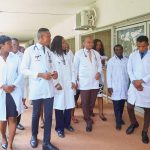EXPERTS ON ANTIMICROBIAL RESISTANCE VISIT UNTH
By: Patrick Okoruwa
Public Relations
Experts from Management Science for Health (MSH), World Health Organization (WHO), Nigeria Centre for Disease Control (NCDC), Fleming Fund Foundation UK, and the Federal Ministries of Environment, Agriculture, Health, and Social Welfare are in the University of Nigeria Teaching Hospital Ituku/Ozalla Enugu to ascertain the preparedness of the hospital to participate in the WHO-developed protocol for antimicrobial resistance and also to evaluate the public implications of antimicrobial resistance on the environment.
The team also comprises representatives from the Federal Ministry of Defence, Veterinary Medicine, UNN, University of Ibadan (UI), University of Jos, and National Hospital, Abuja.
The creme de la creme in the Antimicrobial group was received by the Chairman, Medical Advisory Committee, C-MAC/Director, Clinical Services and Training, Professor Joy Eze, who represented the Chief Medical Director, Professor Obinna Onodugo.
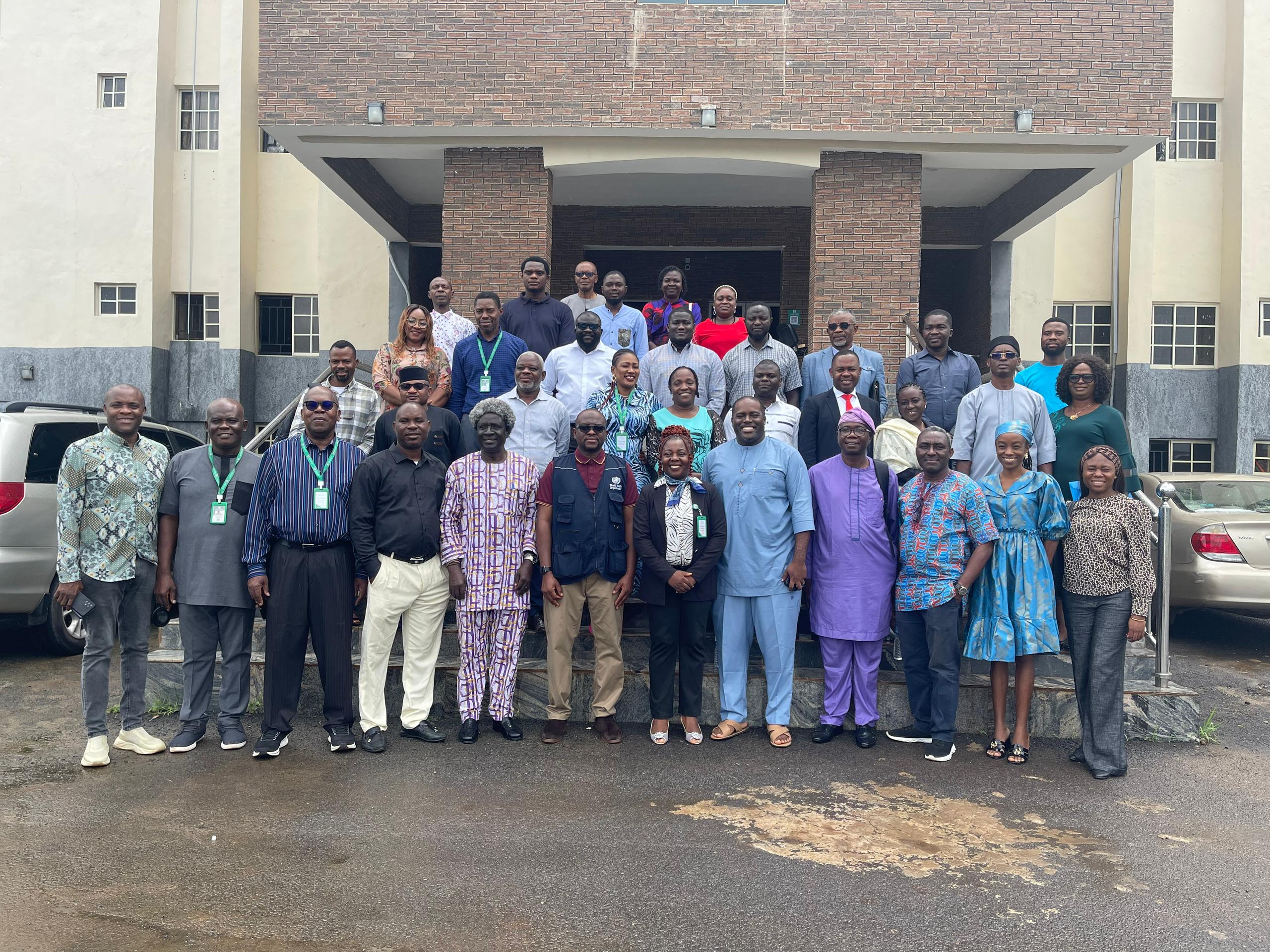
On their mission to UNTH, the team leader, Dr. Chinemerem Onwuliri, stated that they were in the hospital to ascertain the preparedness of the institution to participate in the pilot study. He said that only three states in Nigeria have been selected for the pilot study on antimicrobial resistance. He said that they were attracted to the hospital because of the capacity of the Microbiology Department and that the study will be carried out simultaneously with the Department of Veterinary Medicine, University of Nigeria, Nsukka, UNN in the state.
The representative of the Chief Medical Director, Professor Joy Eze, said she was thrilled to welcome the delegation and promised that the management of the hospital would assist in every way possible to ensure the success of the study.
Speaking further, Prof. Eze said that antimicrobial resistance is a burning issue, and we can never stop talking about it and the need to quantify the burden of resistance in the country. She expressed gratitude to God because the hospital has the capacity to do that through her intellectuals, equipment, and the support from foreign partners to get data.
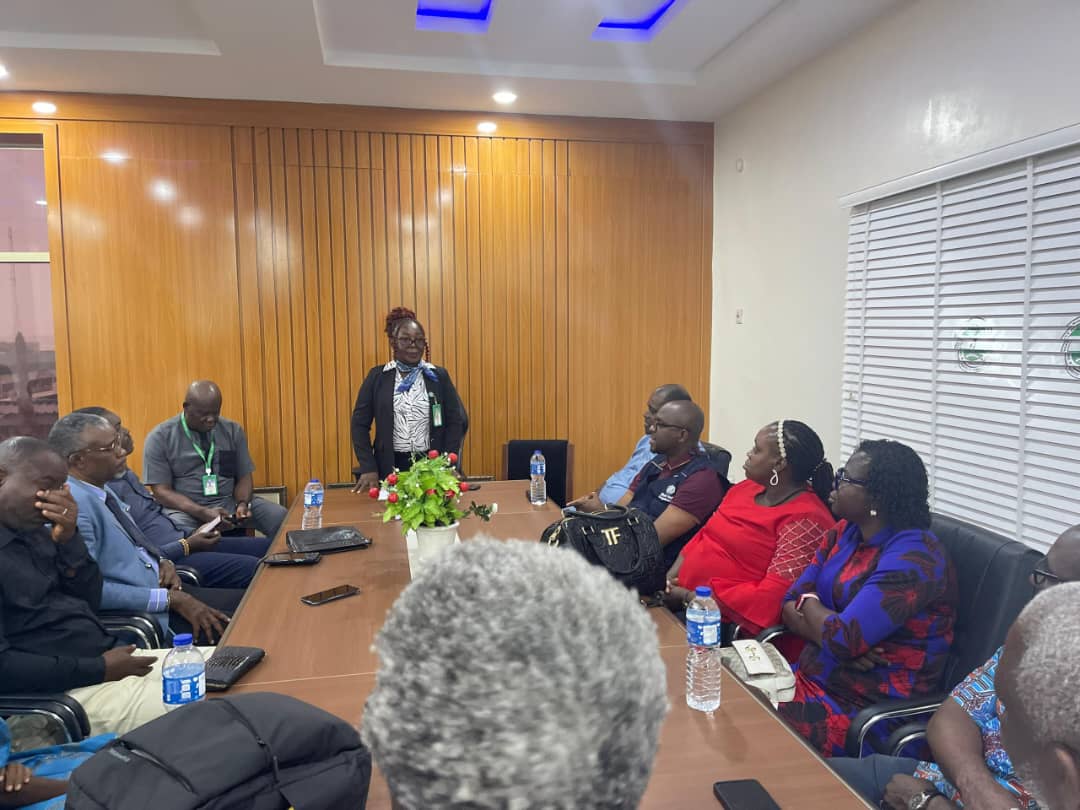
She said further that “if we do not act fast, the organisms will take over the ecosystem.” She assured the visitors that “the hospital will not take it for granted that it is selected, that it is a privilege, and that we will contribute our data and be involved in the stakeholders’ efforts to solve the antimicrobial resistance challenge.”
Professor Eze decries situations where antimicrobials are recklessly used in livestock in Nigeria, which have also contributed to the rise in resistance in humans. She expressed her confidence that the hospital has a very vibrant antimicrobial team under the leadership of Professor Uchenna Ozumba.
She expressed her fears that getting Nigerians to key in to the regulations of antimicrobial use is such a difficult task. She suggested that the government should set up a task force to bring our people to understand the implications of unregulated use of antimicrobials. She painted a sad picture of the indiscriminate use of antibiotics with malaria drugs and the injecting of antimicrobials and prednisolone (steroids) into our chicken to make them grow fast and big, warning that if not checked, it is a dangerous time bomb waiting to explode.
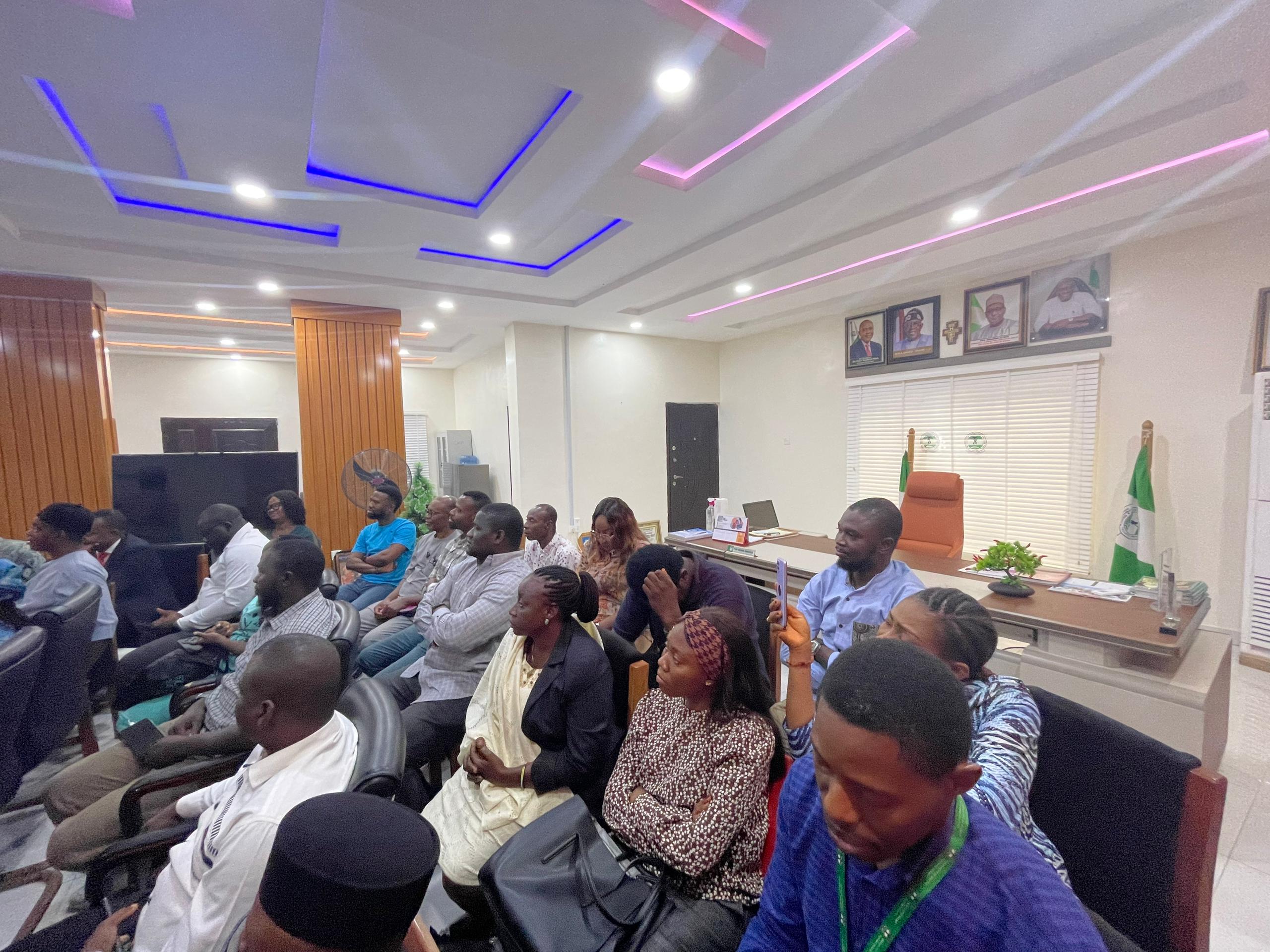
She agreed that the team has done a lot for the hospital, the MSH, NCDC, WHO and the Fleming Foundation, UK.
Professor Eze expressed the management’s gratitude to Fleming Foundation UK for their donations and promised to use the equipment judiciously.
She also advocated for capacity building that will lead to a paradigm shift from ignorance and inaction to action.
Also present at the reception were the Director of Administration, Mrs. Uche Obi, and the Head of the Microbiology Department, Dr. S.O. Ebede.
Related Posts
Leave a Reply Cancel reply
Our Lastest Posts
- THE COMMONWEALTH PARTNERSHIP FOR ANTIMICROBIAL STEWARDSHIP PROJECTS IN UNTH PRESENT REPORT TO MANAGEMENT.
- QUANTUS MEDICAL FOUNDATION CONDUCTS A “CHANGE THE MANAGEMENT TRAINING” IN UNTH
- STUDENTS’ WEEK CELEBRATION BY UNTH SCHOOL OF HEALTH INFORMATION MANAGEMENT
- UNIVERSITY OF NIGERIA TEACHING HOSPITAL (UNTH) APPOINTS DR. NKIRU ZUADA NWACHUKWU AS HEAD OF HOSPITAL FACILITY MANAGEMENT
- CMD LEADS INSPECTION TOUR OF UNTH CLINICS UNVEILS PLANS FOR REVITALISATION

